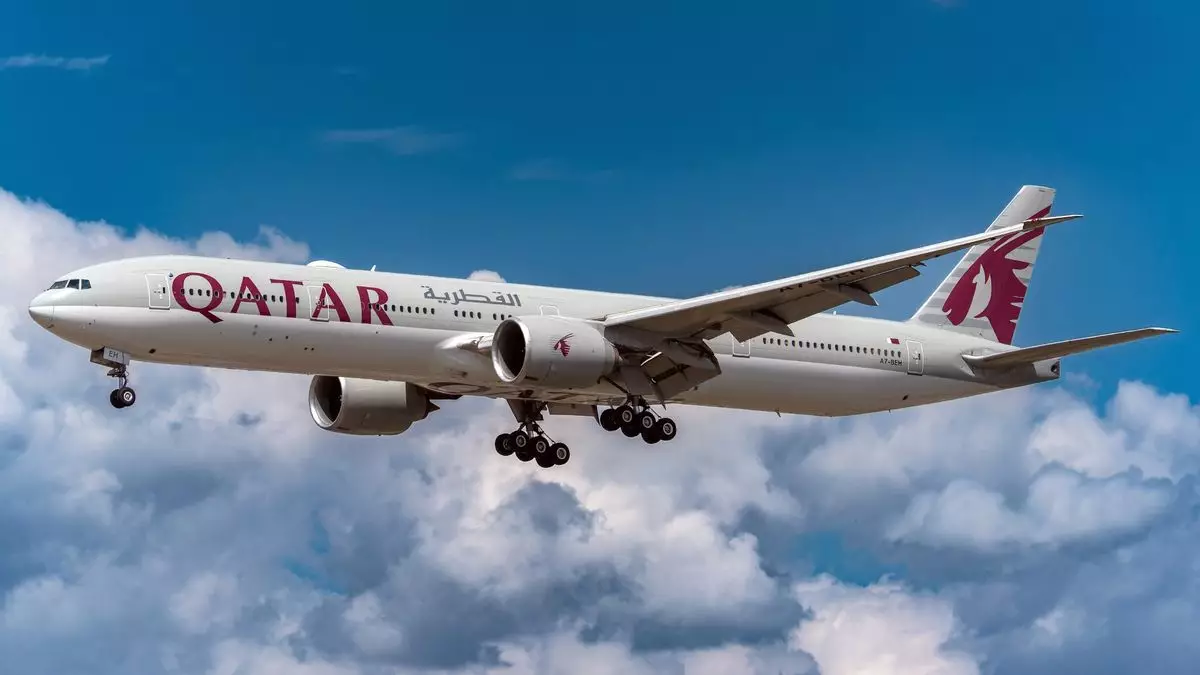In a noteworthy development within the aviation sector, Qatar Airways has made headlines with a monumental order for up to 210 widebody jets from Boeing, an investment that has been pegged at a staggering $96 billion. This deal, which encompasses an array of Boeing 787 Dreamliners and 777X aircraft, not only signifies Qatar Airways’ intent to expand its fleet significantly but also reinforces Boeing’s position as a leading manufacturer of commercial aircraft. The powerful optics around this deal are striking, especially during a state visit by President Donald Trump, presenting an image of economic cooperation and international friendship that cannot be overlooked.
This order stands as Boeing’s largest in terms of widebody aircraft, firmly establishing Qatar Airways as a key player in the global aviation market. It underscores the momentum in the airline industry, which has shown resilience even in the face of economic turbulence and health crises brought about by the pandemic. Such large-scale acquisitions are a testament to the confidence airlines have in the recovery of air travel, as they prepare for an inevitable rebound.
The Financial Dynamics of Aircraft Sales
While the reported value of the deal is considerable, it’s essential to contextualize that this figure likely does not account for the customary discounts prevalent within commercial aircraft acquisitions. It is not unusual for airlines to negotiate substantial reductions off the list price. Therefore, the actual financial implications may differ significantly from the announced value. Such nuances are vital for potential stakeholders to grasp, as they showcase the relational aspect of airline and manufacturer interactions, where leverage and bargaining play a crucial role.
The specifics of the deal were shared during a signing ceremony in Doha, which was attended by high-profile figures, including the CEO of Boeing and members of the Qatar royal family. These gestures not only symbolize economic partnerships but also suggest a strategic alignment between the United States and Qatar, fostering goodwill that extends beyond the realm of aviation.
A Broader Context of International Relations
The recent interactions between President Trump and the Qatari leadership, particularly concerning the proposed gifting of a Boeing 747 as a replacement for Air Force One, adds another layer of complexity to this story. It raises intriguing questions about the intertwining of politics, business, and foreign relations today. The president’s remarks suggesting the acceptance of this gift as beneficial for U.S. taxpayers illustrates the sometimes unclear boundaries in governmental transactions. It reveals a trend where international diplomacy is increasingly steeped in pragmatic considerations, framing potential business transactions as instruments of soft power.
While some critics express ethical concerns about such dealings, proponents argue that these relationships offer strategic advantages that can lead to mutual growth and stability. Ultimately, as global economies continue to shake off the aftereffects of the pandemic and geopolitical tensions, such significant agreements like that of Qatar Airways set a strong precedent and signal optimistic trends for the aviation industry’s future.
The implications of this deal stretch beyond just fleet expansion; they represent a recalibration of alliances and could pave the way for further collaborative ventures between countries and corporations in the years ahead.

